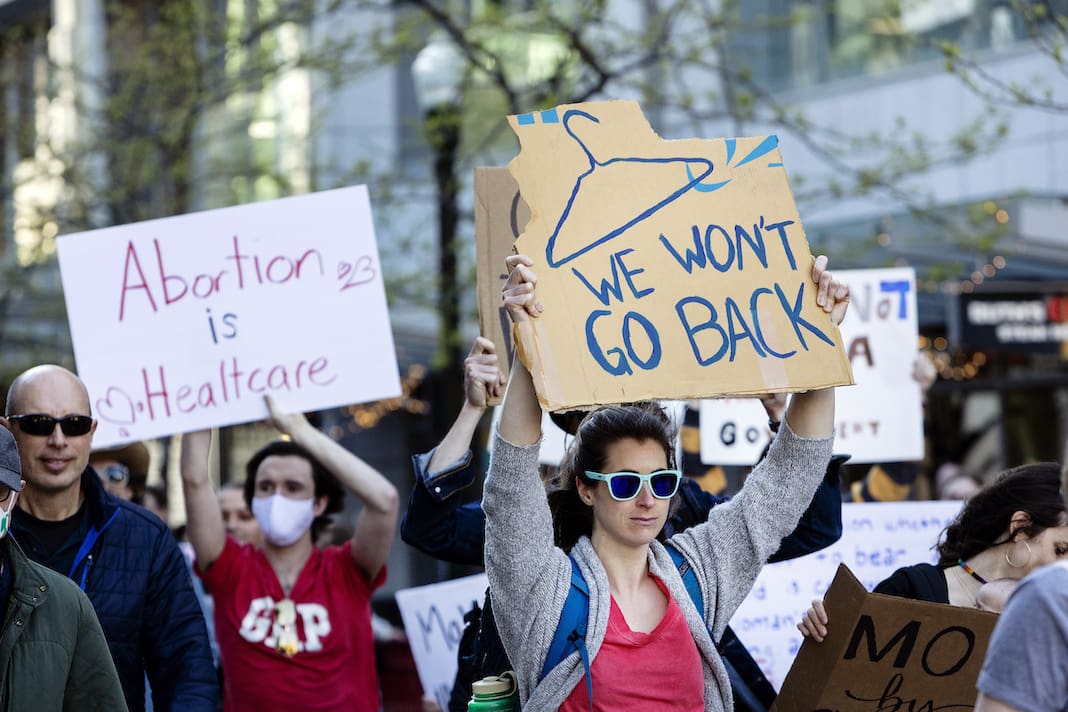How housing instability leads to later abortions
Without stable housing, many struggle to get the health care they need.

As the country prepares for an avalanche of evictions as coronavirus-related eviction moratoriums end, millions of Americans may be thrust into unstable living situations or experience homelessness. With that, they may find abortion services more difficult to access and end up having abortions later in pregnancy.
A new study In the American Journal of Obstetrics and Gynecology looked at over 1,900 people who had an abortion at a San Francisco clinic from 2015 to 2017. What they found was that people experiencing homelessness and housing instability came to clinics later in pregnancy. In turn, that meant they had later abortions.
Typically, patients at the clinic sought abortions at 9.5 weeks, but people with housing instability came nearly four weeks later. At an average of 13.3 weeks, that meant many people experiencing homelessness and housing instability were often very close to or in the second trimester before presenting at the clinic.
People experiencing homelessness and housing instability can receive health care through Medicaid, but the Hyde Amendment prohibits federal funds, including Medicaid, for almost all abortions. Clinics sometimes offer sliding scale fees and there is a national network of abortion funds, but it’s not enough: One in four low-income people ends up carrying an unwanted pregnancy to term.
As the National Latina Institute for Reproductive Justice notes, this problem affects people of color far more than their white counterparts, as people of color are “disproportionately affected” by economic inequality. They call the Hyde Amendment “heartbreakingly successful” at diminishing the reproductive freedom of people with low incomes.
Additionally, 2 states have banned the most common method for later abortions, and other states are trying. Those bans have serious implications for people experiencing homelessness or housing instability. The study found that those people “may be disproportionately impacted by laws that ban abortion after a certain gestational age as they often present later in pregnancy.”
If people are unable to get an abortion in their home state because they are already into their second trimester and that procedure is banned, they may need to travel out of state to obtain an abortion.
For example, Nebraska is currently debating a ban on a later abortion method. Were the state to do so, people needing that procedure would have to travel 342% farther to get an abortion, according to a study from the Guttmacher Institute, which researches reproductive health issues. Increased travel costs can create a significant barrier to abortion care and delay access as people attempt to raise money to afford a more expensive procedure.
The underlying causes here — lack of housing stability — was already a widespread problem. A 2016 study by the Department of Housing and Urban Development found that 200,000 people in families with children were considered homeless and millions more experience housing instability. That is likely to get much worse soon and may lead to many more people needing costlier and harder-to-obtain later abortions.
Published with permission of The American Independent Foundation.
Recommended

Ohio doctors fear effects of emergency abortion care case set to go before U.S. Supreme Court
A federal law that allows emergency departments to treat patients without regard to their ability to pay will be under U.S. Supreme Court scrutiny this week, and Ohio doctors are concerned about the case’s local impact on emergency abortion care.
By Susan Tebben, Ohio Capital Journal - April 23, 2024
Biden on abortion rights: President expects to give speech Tuesday on new Florida 6-week ban
‘Having the president of the United States speaking out loud and with confidence about abortion access is a great thing’
By Mitch Perry, Florida Phoenix - April 22, 2024
Group launches effort to explore ballot initiative restoring abortion access in Idaho
Organizers say fundraising begins now for inclusion on the 2026 ballot
By Kelcie Moseley-Morris, Idaho Capital Sun - April 19, 2024







































































